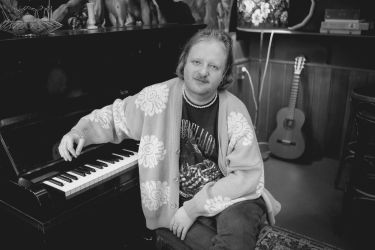born in Vienna in 1992, studied at the Hamburg Theatre Academy. He has made a name for himself as a director in Germany and Austria with queer classic productions, for which he has received numerous awards, including the Nestroy Prize in 2019 and the Culture Prize of the Province of Lower Austria in 2023. Moritz Franz Beichl lives in Vienna. His debut novel "Die Abschaffung der Wochentage" and his first theatre play "Effi, Ach, Effi Briest" (S. Fischer Verlag) were published in 2022. His most recent publication is "Männer" (2024).
all events
